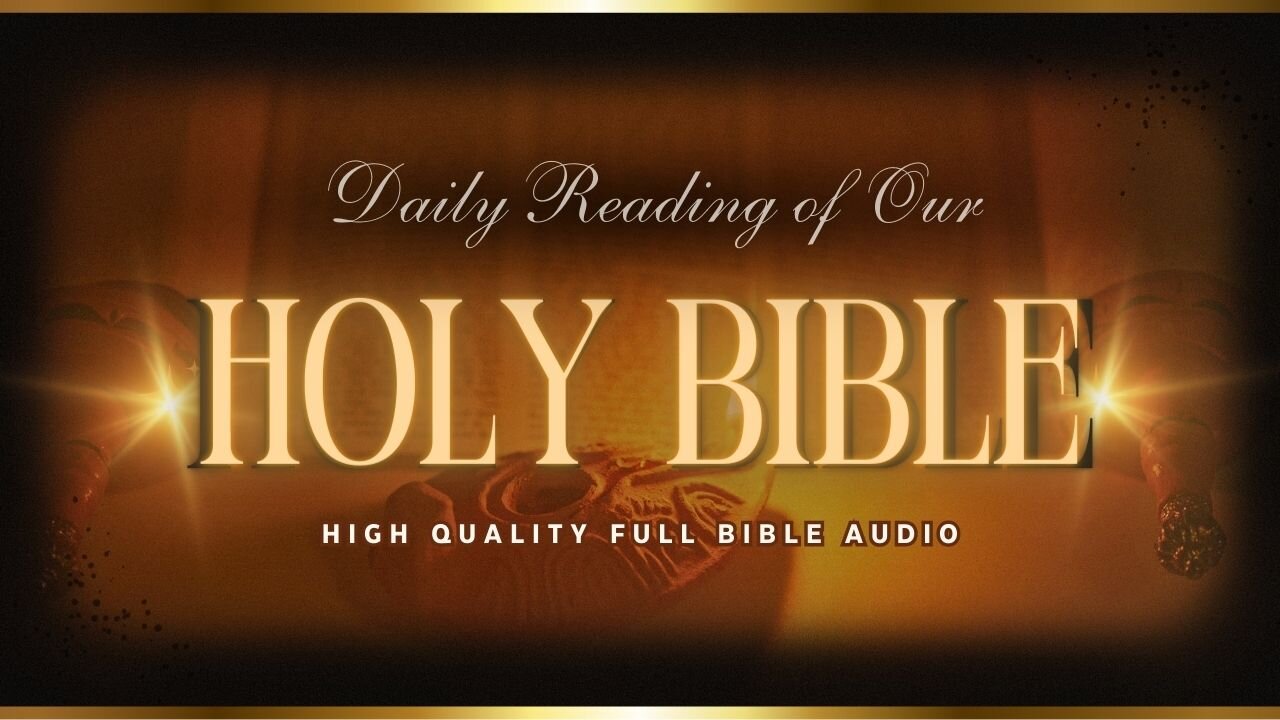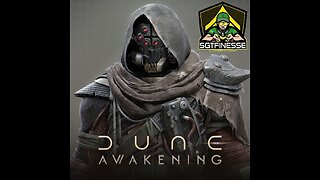Premium Only Content

Genesis 18:16-33 Psalm 35:1-8 Proverbs 20:16 27:13 Matthew 16:13-28 Mark 8:27-38 Luke 9:18-27 Bible
Genesis 18:16-33:
In this passage, the three visitors—identified as the Lord and two angels—prepare to leave Abraham and continue their journey toward Sodom. The Lord shares with Abraham His intention to investigate the outcry against Sodom and Gomorrah due to their wickedness. Abraham intercedes on behalf of the righteous within those cities, asking the Lord if He would spare the cities if a certain number of righteous people were found there. The Lord agrees, and Abraham negotiates down from fifty to ten righteous people. The Lord then departs, and Abraham returns to his place.
Psalm 35:1-8:
In this portion of Psalm 35, the psalmist pleads for God's protection and deliverance from enemies who seek to harm them unjustly. They call upon the Lord to contend with those who oppose them and to fight against those who wage war against them. The psalmist asks God to shield them from the schemes of the wicked and to send confusion upon their enemies. They express confidence in God's justice and righteousness, trusting that He will vindicate the innocent and bring justice to the oppressors.
Proverbs 20:16:
This proverb highlights the destructive nature of taking a stranger's garment as collateral for a loan. It suggests that acquiring a stranger's clothing in pledge is akin to taking unfair advantage of them and implies a lack of compassion and consideration for their well-being. The proverb warns against engaging in exploitative practices and encourages treating others with fairness and generosity.
Proverbs 27:13:
This proverb emphasizes the value of prudent planning and preparation for the future. It suggests that one should take precautions and secure resources for the uncertainties that lie ahead. The proverb highlights the importance of foresight and readiness in facing life's challenges, encouraging wise stewardship and diligence in managing one's affairs.
Matthew 16:13-28:
In this passage, Jesus asks His disciples who people say He is, and they respond with various answers. Peter declares that Jesus is the Messiah, the Son of the living God. Jesus blesses Peter and acknowledges that this revelation came from God. Jesus then predicts His suffering, death, and resurrection, but Peter rebukes Him, prompting Jesus to rebuke Peter in return. Jesus explains that following Him requires self-denial, taking up one's cross, and losing one's life for His sake. He teaches that gaining the whole world is of no value if one loses their soul. Jesus tells His disciples that some of them will see the kingdom of God before they die.
Mark 8:27-38:
In this passage, Jesus asks His disciples who people say He is, and they respond with various answers. Peter declares that Jesus is the Messiah, but Jesus warns them not to tell anyone. Jesus then predicts His suffering, death, and resurrection, but Peter rebukes Him. Jesus rebukes Peter in return and teaches that following Him requires self-denial, taking up one's cross, and losing one's life for His sake. He warns that gaining the whole world is of no value if one loses their soul and declares that some of His disciples will see the kingdom of God before they die.
Luke 9:18-27:
In this passage, Jesus asks His disciples who people say He is, and they respond with various answers. Peter declares that Jesus is the Messiah of God. Jesus then predicts His suffering, death, and resurrection, but Peter rebukes Him. Jesus rebukes Peter in return and teaches that following Him requires self-denial, taking up one's cross daily, and losing one's life for His sake. He warns that gaining the whole world is of no value if one loses their soul and declares that some of His disciples will see the kingdom of God before they die.
-
 LIVE
LIVE
Sgtfinesse
1 hour ago✅ Dune: Awakening | Arrakistan Life
39 watching -
 LIVE
LIVE
FyrBorne
21 hours ago🔴Warzone M&K Sniping: Why Can't Dinos And Zombies Just Get Along?
43 watching -
 2:02:18
2:02:18
Side Scrollers Podcast
23 hours agoVShojo COLLAPSES, Unhinged CELEBRATE Hulk Hogan’s Death, Chuck E Cheese ARRESTED | Side Scrollers
37.2K6 -
 LIVE
LIVE
BatDude Gaming
1 hour ago🦇 RUMBLE GAMING 🦇 ⚡⚡ TALES from the BORDERLANDS (Continued) ⚡⚡ STORY BASED GAME 🦇
20 watching -
 LIVE
LIVE
Rotella Games
2 hours agoSaturday Morning Family Friendly Fortnite
52 watching -
 LIVE
LIVE
HartZA92
2 hours agoGenesis Alpha One: Build, Blast & Survive the Final Frontier!
263 watching -
![[HD] Gamer Stream](https://1a-1791.com/video/fww1/53/s8/1/c/G/G/5/cGG5y.Gkob-small-HD-Gamer-Stream.jpg) LIVE
LIVE
darealchurchiee
3 hours ago[HD] Gamer Stream
104 watching -
 3:53:47
3:53:47
Anvilight
5 hours agoWorld of Warcraft | Trump Arrives in Scotland to Meet with Anvilight for Azeroth Peace Negotiations
6.39K1 -
 25:49
25:49
GritsGG
14 hours agoRank 1 Player Crushes Solo Lobby!
31.7K3 -
 LIVE
LIVE
Wahzdee
3 hours ago🔥 Trying to Find The One Extraction Game – Be Honest, Are These Fun to Watch?
68 watching